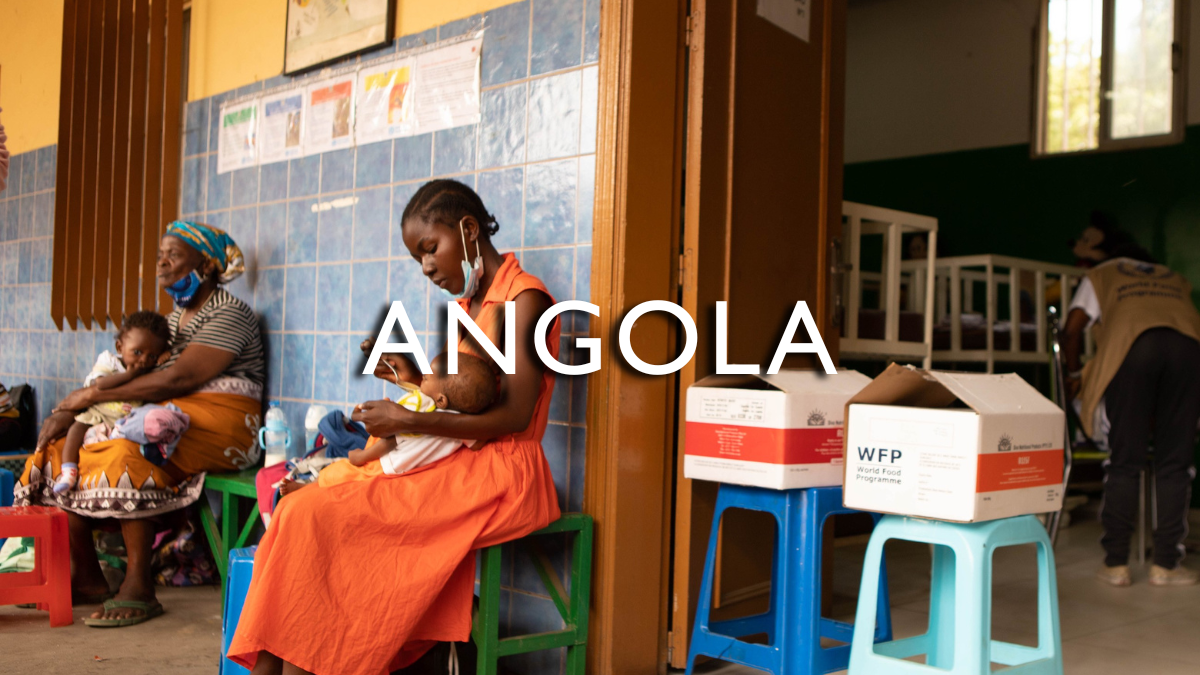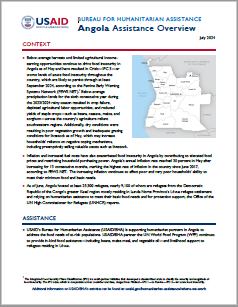
Angola is susceptible to recurrent climatic shocks, including drought and flooding, which have limited agricultural production and worsened food insecurity in the country. Additionally, insufficient access to safe drinking water and basic health care services contributes to increased morbidity and mortality rates.
In Angola's Cunene, Huíla, and Namibe provinces, nearly 1.6 million people required emergency food assistance as of January 2023, the UN World Food Program (WFP) reports. Moreover, more than 6,400 refugees from the Democratic Republic of the Congo sheltering in Lunda Norte Province's Lóvua refugee settlement were reliant on humanitarian assistance to meet their basic food needs and for protection support as of January 2023, according to the Office of the UN High Commissioner for Refugees (UNHCR). On November 29, 2022, U.S. Ambassador Tulinabo S. Mushingi issued a redeclaration of humanitarian need due to widespread food insecurity in the country. USAID continues to support food, nutrition, and water, sanitation, and hygiene assistance to bolster food security and nutrition outcomes for at-risk populations in Angola.

